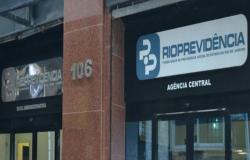President Luiz Inácio Lula da Silva participated, this Friday (26), in the inauguration of the Biomm company’s insulin factory, in Nova Lima, Minas Gerais. With the new unit, Brazil resumes production of the hormone in the country, with the capacity to meet the national demand for insulin.
During his speech, Lula highlighted the importance of the factory for the population’s access to inputs and paid tribute to the work of Walfrido dos Mares Guia, who is one of the founding partners and member of Biomm’s board of directors. With a history in politics, Walfrido is a friend of Lula and was a minister during the president’s first two terms, between 2003 and 2007.
Moved, the president recounted the experience of his great-granddaughter Analua, aged 7, who lives with type 1 diabetes mellitus. “She lives with braces on her shoulder, [conectado] With a cell phone, every thing she eats, she has to control. And what’s fantastic is that she asks her mother and father to give her insulin, she’s no longer afraid, it’s already part of her life. […] So, I want my great-granddaughter Analua to know that this nice figure here [Walfrido] It will give you peace of mind so you can live longer than me and more than he is living, because life needs the good to live long and the bad to rest soon”, he said.


President Lula visits Biomm’s insulin production plant, in Nova Lima/MG. Photo: Ricardo Stuckert / PR
Diabetes is a disease caused by insufficient production or poor absorption of insulin, a hormone that regulates blood glucose and provides energy for the body. Insulin has the function of breaking down glucose (sugar) molecules, transforming it into energy for the maintenance of the body’s cells. Diabetes can cause high blood sugar levels and high levels can lead to complications in the heart, arteries, eyes, kidneys and nerves. In more serious cases, diabetes can lead to death.
According to the Minister of Health, Nísia Trindade, more than 20 years ago Brazil did not have national insulin production and depended only on imported products. “To have a health science and technology policy that brings products to the population, we have to have an industrial policy,” she said.
The biopharmaceutical company’s investment in the construction of the new structure was R$800 million. The factory will have capacity for 20 million units of glargine (long-acting) insulin refills per year – and, subsequently, insulin pens. In addition, it will be able to manufacture 20 million vials of other biomedicines, such as recombinant human insulin. The estimate is that the unit will generate 300 direct jobs and 1,200 indirect jobs.
Brazil is one of the countries with the highest incidence of diabetes in the world, with 15.7 million adult patients, according to data from the International Diabetes Federation Atlas, released by the government. “What is being done here is a guarantee of life for a disease that we have to work on preventing, but we know that, in many cases, we will not escape medication, insulin and other medicines that SUS already provides in pharmaceutical assistance and Pharmacy Popular”, said Minister Nísia.
Insulin glargine is indicated for the treatment of diabetes mellitus types 1 and 2. Last year, amid the risk of shortages, the Ministry of Health made an emergency purchase of 1.3 million units of insulin aspart (fast-acting) indicated to treat type 1 diabetes mellitus, which accounts for 5% to 10% of people diagnosed with the disease. At the time, the department reported that the other most consumed regular insulins were in adequate stock to serve the SUS network.
Partnership
Biomm is considered a pioneer in the biomedicine sector in Brazil and is part of the National Strategy for the Development of the Health Economic-Industrial Complex (CEIS), launched by the government in September 2023. By 2026, the forecast is R$42 billions in public and private investments in this industrial sector to reduce Brazil’s dependence on foreign inputs, medicines, vaccines and other health products.
In the context of the strategy, the company participates in the Ministry of Health’s Partnership Program for Productive Development, which involves coordination between the government and the private sector. Founded in 2001, Biomm is a Brazilian company that offers affordable drugs for the treatment of chronic diseases in the country.
To implement the new industrial unit in Nova Lima, Biomm obtained R$203 million in credit via the Studies and Projects Financier (Finep), a public company linked to the Ministry of Science, Technology and Innovation (MCTI), the National Bank for Economic Development and Social (BNDES) and Development Bank of Minas Gerais (BDMG), in addition to R$ 133 million contributed via equity (shareholding) by BNDES and BDMG.
Also during the event, the Oswaldo Cruz Foundation (Fiocruz) and Biomm signed a protocol of intentions on drug production platforms for the treatment of metabolic diseases, which has as its backdrop the strengthening of the CEIS and Brazil’s greater autonomy in production of medicines for the SUS.
Tags: Brazil resumes insulin production capable meeting national demand
--






